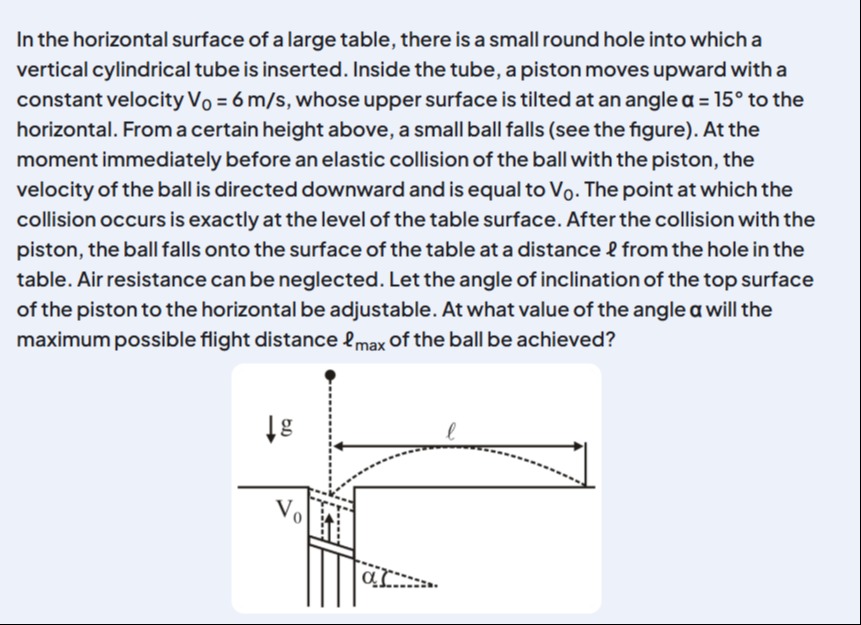Question
Question: In the horizontal surface of a large table, there is a small round hole into which a vertical cylind...
In the horizontal surface of a large table, there is a small round hole into which a vertical cylindrical tube is inserted. Inside the tube, a piston moves upward with a constant velocity V0 = 6 m/s, whose upper surface is tilted at an angle α = 15° to the horizontal. From a certain height above, a small ball falls (see the figure). At the moment immediately before an elastic collision of the ball with the piston, the velocity of the ball is directed downward and is equal to V0. The point at which the collision occurs is exactly at the level of the table surface. After the collision with the piston, the ball falls onto the surface of the table at a distance l from the hole in the table. Air resistance can be neglected. Let the angle of inclination of the top surface of the piston to the horizontal be adjustable. At what value of the angle α will the maximum possible flight distance lmax of the ball be achieved?

21arccos(833−1)
Solution
The problem involves finding the angle α that maximizes the horizontal distance l the ball travels after colliding with the piston. The solution involves analyzing the elastic collision in the piston's frame of reference, transforming back to the ground frame, and then using projectile motion equations to find l as a function of α. Finally, calculus is used to maximize l with respect to α, leading to the expression α=21arccos(833−1).
